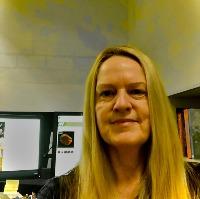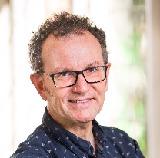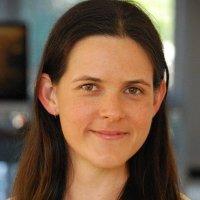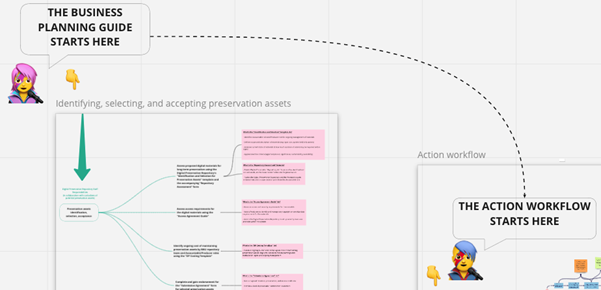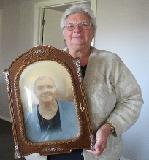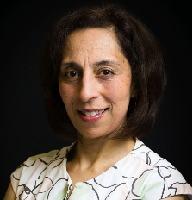Blog
Unless otherwise stated, content is shared under CC-BY-NC Licence
Record, upload, archive... repeat
Vera Ferreira is Depositing Officer for Endangered Languages Documentation Programme, BBAW in Lisbon, Portugal and Leonore Lukschy is Programme Administrator & Communications Officer for Organisation: Endangered Languages Documentation Programme, BBAW in Berlin, Germany
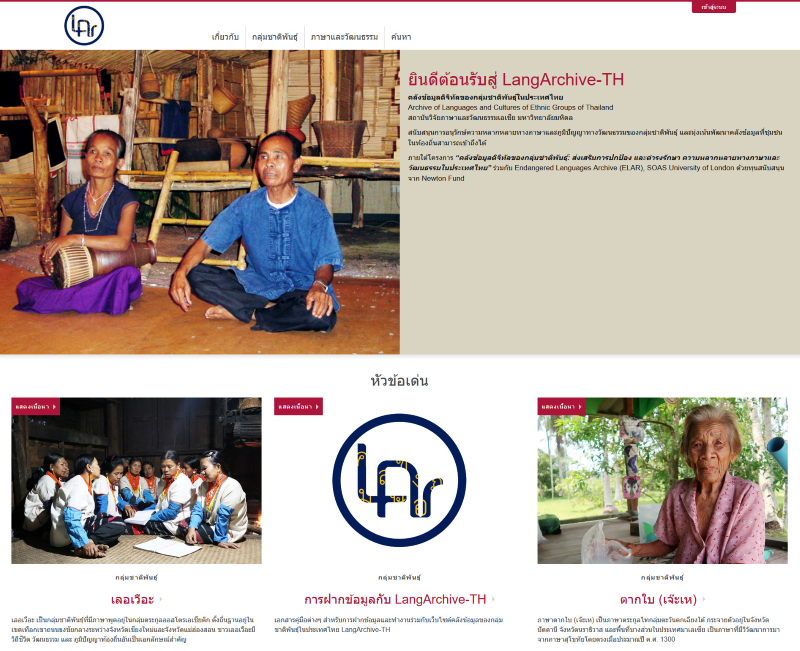
Homepage of the Archive of Languages and Cultures of Ethnic Groups of Thailand (https://langarchive-th.org)
Capturing Digital Memory – Breaking Down Barriers
Lee-Anne Raymond is Manager of MV Images (DAMS) at Museums Victoria, Australia
This year’s theme Breaking Down Barriers invokes imagery of protest marches, placards, actors suddenly bursting into song… Just me? Likely. Too much streaming in long lockdowns. Honestly, I really had to mull on the theme a bit, as I was concerned. How could I determine that barriers are being broken down from within a Museum where we do a lot of digitisation for reasons of physical preservation and access?
A new Digital Archive to preserve Victoria’s history now and into the future
Julie McCormack is Senior Manager for Government Recordkeeping at Public Record Office Victoria, Australia
Public Record Office Victoria in Australia (PROV) is pleased to announce the completion of our Digital Archive Program, replacing our entire archival management and digital preservation environment that had been in place since 2005. This program represents a key initiative of our Victorian Electronic Records Strategy (VERS) to ensure continuous access to complete, authentic and meaningful digital records now and into the future.
OAIS: Isn’t that a British rock band with delusions of grandeur? Breaking down barriers by sharing knowledge
Carey Garvie is Project Officer, Digital Archives Innovation and Research at the National Archives of Australia
After a hectic September of virtual conferences and opportunities to connect and share stories about how the National Archives of Australia does digital preservation with the broader community, I finally got a chance to sit back and start writing our blog for World Digital Preservation Day 2021 (WDPD2021). Reflecting on the theme of ‘Breaking Down Barriers’ and making digital preservation ‘understandable, relatable and accessible to all’, I began to think not about external community activities but internal ones instead.
Records from the sea of islands: The Pacific and Regional Archive for Digital Sources in Endangered Cultures (PARADISEC)
Nick Thieberger works for the Pacific and Regional Archive for Digital Sources in Endangered Cultures (PARADISEC) and the University of Melbourne
The distance between major population centres in the Pacific makes it difficult for residents of the sea of islands to access records in their languages. Even if records are stored in national museums or cultural centres, that can be some distance from most of the population. As the internet becomes more widely available, connection to these records becomes more feasible, but that requires the records to be described, digitised, and made accessible.
Breaking down barriers to implement digital preservation
Jaye Weatherburn, Program Manager Digital Preservation and Elise Bradshaw, Digital Curation and Archives Specialist work at the University of Melbourne
Supporting digital connections
The theme of this year’s World Digital Preservation Day, “Breaking Down Barriers” connects with some work we have currently underway to realise the University of Melbourne’s 10-year digital preservation strategy. This year in a big effort to build and support connections between the distributed teams contributing to the success of long-term digital preservation at the university, we have been working on a collaborative planning and implementation process for long-term preservation of university records.
Digitisation and digital preservation practice – making archives available and keeping it accessible (part 3)
Ros Malone is School Archivist for Bunbury Cathedral Grammar School in Perth, Australia
Image Keys: Easing Barriers to Retrieval in the School Archives
It’s a familiar problem for many Schools and School Archives, and indeed for collections of all kinds – what can be done with our vast collection of untitled, un-tagged digital images?
Digitisation and digital preservation practice – making archives available and keeping it accessible (part 2)
Rosemary Grace Bruce-Mullins is Committee Member and Member of the Research Team at the Wentworth Historical Society Inc, Australia
As a local History Society member digital preservation of records provides a multitude of benefits.
An experience where the local town hall, that housed the history society collection, was firebombed, and thankfully saved, made us aware of the reality of losing the collection, and all the information it contained.
Digitisation and digital preservation practice – making archives available and keeping it accessible (part 1)
Karuna Bhoday is Program Manager, Integrated Archival Management System Program at National Archives of Australia.
The National Archives of Australia ensures that Australian Government information of enduring significance is identified, secured, preserved and accessible for future generations.
To continue to meet our vision of being world leading archive in this digital age and to fulfil our functions now and into the future a high priority for the National Archives is to embed an end-to-end archival management capability across the organisation and to accelerate its digital transformation. The integrated Archival Management System Program (IAMS) is a Digital Transformation Project led by our Chief Information Officer.
Breaking Down Barriers: World Digital Preservation Day 2021
It’s my pleasure to announce the official start of World Digital Preservation Day.
It’s both welcome and surprising to realise that we’re now onto our fifth annual event. In the first couple of years, the simple purpose of connecting people and raising awareness about our work was sufficient. Even that seemed ludicrously ambitious in 2017. This year’s theme – Breaking Down Barriers – represents a new confidence, and perhaps a new urgency too. It’s a call to action. It’s a challenge to do something with those connections and insights that we’ve gained in the last four years. We’ve connected with colleagues around the world and formed those relationships and in 2021 we move forward together.
There’s no shortage of ambition here, but let’s be honest, there’s a need for ambition. There are enough barriers to be broken down. We’re used to thinking about digital preservation as the intersection of technology, resources and organization. There are barriers to all three of these, and the scale of the challenge only seems to grow.


















































































































































